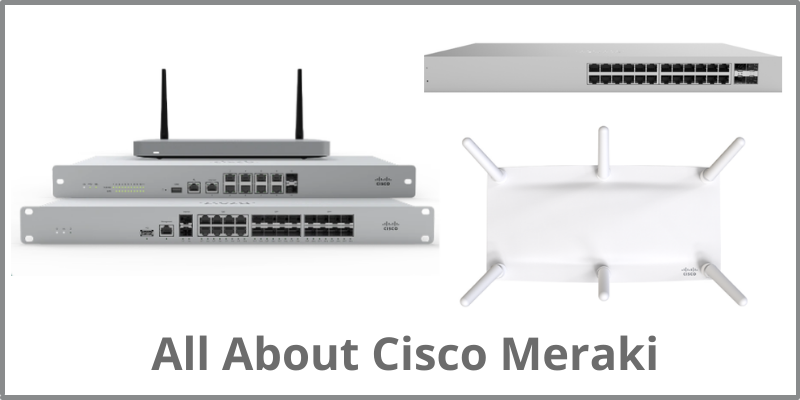Introduction
In today's world, there are many options for your business' networking needs. From Wi-Fi and Ethernet to wireless mesh solutions and more, you have a lot of choices when it comes to choosing what equipment will best serve the needs of your organization. One example of this is Cisco Meraki, which is designed specifically for businesses with complex networks and large numbers of users accessing multiple devices from one IP address at any given time. We're going to take a look at how one company recently made that decision as well as what they found out about traditional networking and how it compares with Meraki's approach.
Networking: What You Need To Know
Networking is important, but it's not the only thing you need to consider when it comes to your business. You also need to think about security and performance.
Network security is a big concern in today's world of high-tech attacks and hacks. Many companies have been affected by these types of attacks, leaving them with damaged data or compromised systems that could lead to financial losses if they're not addressed quickly enough. This can be especially problematic for smaller businesses that don't have dedicated IT staffs on hand 24/7—the costs associated with repairing network problems are often too great for small businesses without much cash flow (or even those who do have cash flow).
As such, there are many options available for network security: from traditional networking equipment like routers and switches; through cloud computing; all the way down into mobile devices like smartphones and tablets!
Cisco Meraki vs. Traditional Networking
The Meraki network management system is a cloud-based network management system that allows you to manage your networks on the go. Traditional networking, however, requires on-site hardware and software installation. In addition to being more flexible and adaptable than traditional systems, Meraki’s lower cost of ownership makes it a viable alternative for many businesses in need of a scalable solution.
Cisco Meraki offers a range of products designed specifically for small businesses; each one has its own strengths and weaknesses but together they offer an impressive array of features at affordable prices (or even free).
Meraki's Flexible Architecture
The Meraki architecture is a cloud-based platform that's easy to scale up or down. As you add more devices, your network can adjust to meet the needs of the business. There's no need for dedicated infrastructure; all of your devices connect directly over the internet and are managed from one central location—the cloud.
This flexibility makes it easier for businesses to stay connected without investing in large amounts of equipment upfront or dealing with expensive upgrades as their networks grow in size. It also means less hassle for IT staff who aren't constantly managing multiple networks at once (or even having one at all).
Simplicity, Flexibility, and Security in One Place
With Cisco Meraki, you’re able to simplify your network management by eliminating the need for on-site staff. The device is managed from a cloud-based platform that allows you to access it anywhere in the world and manage your entire infrastructure from anywhere.
The cost of using Meraki is significantly less than traditional networking solutions due to its simplicity, flexibility, and security features—all at one low price!
Possible Drawbacks of Cisco Meraki
The most important thing to note about Cisco Meraki is that it's designed to be cloud-based, which means you'll need a reliable internet connection. This can be tricky if your business has a lot of devices that may or may not be connected at any given time. If you're looking for an alternative that doesn't require constant access to the internet (and doesn't have its own issues), check out the following options:
- Nighthawk X10 AC3200 Tri-Band WiFi Router
This router supports enhanced WiFi speeds of up to 3200 Mbps and has four external antennas that allow it to function as both an access point and router simultaneously—making it ideal for businesses who need both coverage capability and speed. It also comes with built-in parental controls so parents can limit what their kids see online without constantly going through filters themselves!
Takeaway:
Meraki is a good choice for small and medium businesses that don't need the bells and whistles of Cisco's networking products. It's easy to set up, manage, secure, and scale.
If you're looking for a more robust solution with more features—such as encryption or QoS—then Cisco might be better suited to your needs.
Conclusion
If you're a business owner, it can be difficult to know which approach is right for your company. Traditional networking and cloud-based solutions are both popular options, but they each have their own set of benefits and drawbacks as how traditional networking stacks up against cloud-based technologies like Cisco Meraki in terms of cost and performance--and what you need to know before making any decisions about which one is right for your business.



